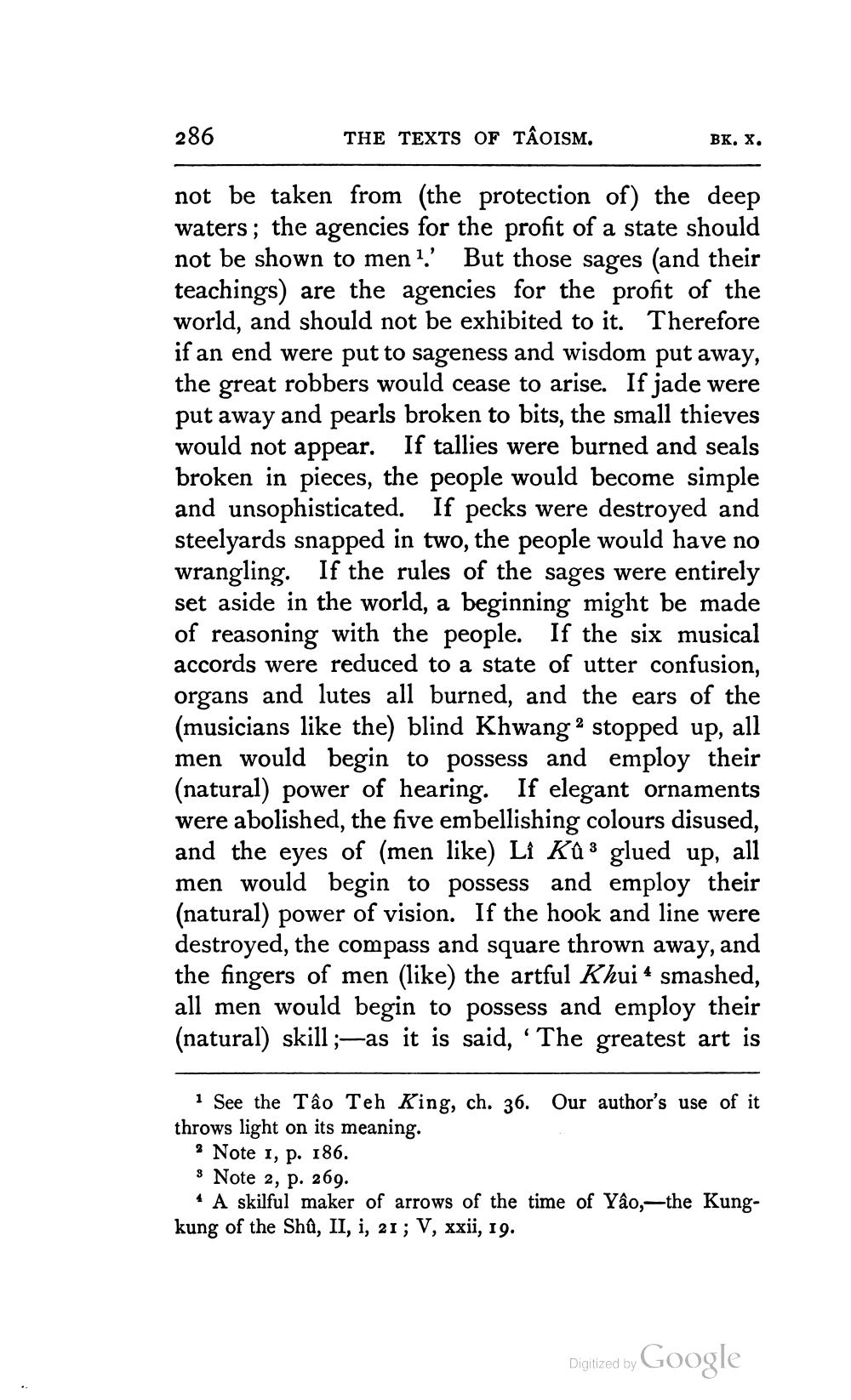________________
286
THE TEXTS OF TÂOISM.
BK, X.
not be taken from (the protection of) the deep waters; the agencies for the profit of a state should not be shown to men 1.' But those sages (and their teachings) are the agencies for the profit of the world, and should not be exhibited to it. Therefore if an end were put to sageness and wisdom put away, the great robbers would cease to arise. If jade were put away and pearls broken to bits, the small thieves would not appear. If tallies were burned and seals broken in pieces, the people would become simple and unsophisticated. If pecks were destroyed and steelyards snapped in two, the people would have no wrangling. If the rules of the sages were entirely set aside in the world, a beginning might be made of reasoning with the people. If the six musical accords were reduced to a state of utter confusion, organs and lutes all burned, and the ears of the (musicians like the) blind Khwang 2 stopped up, all men would begin to possess and employ their (natural) power of hearing. If elegant ornaments were abolished, the five embellishing colours disused, and the eyes of (men like) Li Kûs glued up, all men would begin to possess and employ their (natural) power of vision. If the hook and line were destroyed, the compass and square thrown away, and the fingers of men (like) the artful Khui + smashed, all men would begin to possess and employ their (natural) skill ;—as it is said, 'The greatest art is
See the Tâo Teh King, ch. 36. Our author's use of it throws light on its meaning.
? Note 1, p. 186. 8 Note 2, p. 269.
4 A skilful maker of arrows of the time of Yão,—the Kungkung of the Shû, II, i, 21; V, xxii, 19.
Digitized by Google




